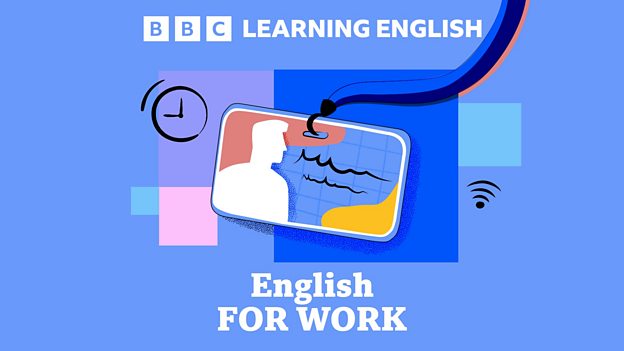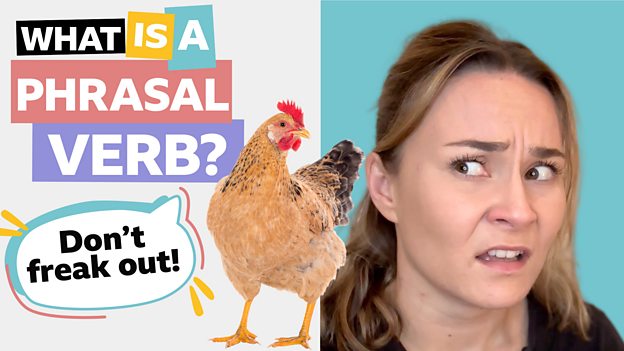6 Minute English
Intermediate level
Saving water in the driest place on Earth
Episode 240919 / 19 Sep 2024

_____________________________________________________________________________________________________
Download a free 6 Minute English worksheet!
Download a free transcript!
______________________________________________________________________________________________________
Try more episodes of 6 Minute English:
______________________________________________________________________________________________________
Introduction
How can farmers water their crops when they live in the driest place on Earth? Neil and Beth hear about a solution and teach you some useful vocabulary.
This week's question
Is clay good for:
a) curing headaches?
b) digesting food? or,
c) smoothing face skin?
Listen to the programme to hear the answer.
Vocabulary
drain
remove the liquid from something by pouring it out or letting it flow away
cling
stick or hold onto something very tightly
kick-start
make something start to happen or develop more quickly
manipulate
skilfully use or control something
down the line
at some unspecified point in the future
only time will tell
(idiom) the real results of something happening now will not be known until some time in the future
TRANSCRIPT
Note: This is not a word-for-word transcript.
Neil
Hello. This is 6 Minute English from BBC Learning English. I’m Neil.
Beth
And I’m Beth.
Neil
We all know how horrible it feels to be thirsty. Human bodies need around 3 litres of water a day, and thankfully most of us can just turn on the kitchen tap to get clean drinking water.
Beth
But globally, over two billion people, around a quarter of the world’s population, live in water stressed countries, where access to water for drinking, cooking, and washing is not guaranteed. What’s more, water is also needed to grow food and that’s getting harder due to droughts which are increasing with climate change.
Neil
In this programme, we’ll visit farmers in one of the driest places on Earth – Yuma in the USA - where a new technology involving liquid clay is helping farmers grow fruit and vegetables in the desert. And, as usual, we’ll be learning some useful new vocabulary too.
Beth
But first I have a question for you, Neil. Everyone knows that plants need sunlight and water to grow, but soil is just as important. One of the most useful soils is clay, a dense, smooth soil which is very fertile but sticky. Clay has been used in agriculture for thousands of years, but what is its more modern use? Is clay good for:
a) curing headaches?
b) digesting food? or,
c) smoothing face skin?
Neil
Hmm, I think clay can be used to smooth the skin on people’s faces.
Beth
OK, Neil. We’ll find out if that’s the correct answer later. Lack of water and farming are closely connected. Agriculture uses a massive 70% of the world’s fresh water supply, so ways to use water more efficiently are much needed. Ole Sivertsen’s company, Desert Control, works with date farmers in Yuma, an area on the border of California and Mexico. One of the hottest places on Earth, Yuma has been experiencing its worst drought in 500 years, forcing farmers to pump water from rivers to grow their date palm trees.
Neil
Fortunately, Ole’s team have created a liquid that, they say, can turn the sandy desert soil into a sponge which holds water and nutrients. Here, he explains his invention to Anthony Wallace, reporter for BBC World Service programme, People Fixing the World:
Anthony Wallace
To understand how it works we need to look at the difference between sandy soil and clay soil. Sandy desert soil has a lot of gaps in it so water drains through it quickly, making it hard for plants to establish the root system in the ground. But clay soil is made up of much smaller particles that cling together and naturally stop water from escaping.
Ole Sivertsen
It creates the habitat for the soil microbiology to also start to develop and evolve, so it's kind of a kick-start as well to nature's natural processes.
Beth
The problem with sandy soil is that it drains water. If you drain something, you remove the liquid from it. Clay soil, on the other hand, is made of smaller particles which cling, or stick together tightly, and hold water, helping plants grow.
Neil
Ole makes a liquid by mixing clay and water which changes the soil composition and kick-starts the growth of his trees – the liquid makes the trees start growing more quickly. Liquid clay technology is still new, and costing around 2,000 dollars an acre, it’s not cheap. But Ole claims his technique halves the amount of water needed to grow fruit trees, and that most farmers will make back their investment within two years.
Beth
Ole’s claims sound too good to be true. But are there downsides to interfering with nature in this way? Presenters, Myra Anubi and Anthony Wallace, discussed this question for BBC World Service’s, People Fixing the World:
Myra Anubi
Anthony, I'm still left wondering, right… when you manipulate soil like this, could you be causing problems down the line?
Anthony Wallace
Yeah, I think anytime that there's a new technology where you are, like you said, manipulating nature only time will tell what the long-term effects of that will be… but Ole did stress that their liquid clay does not use any chemicals - only clay, air and water.
Neil
Ole’s liquid clay involves manipulating soil – using and controlling it skilfully to achieve some result. Myra worries that when people do this, they could create problems down the line – at some unspecified point in the future.
Beth
In fact, only time will tell if liquid clay is a long-term solution to the problem of water scarcity. The phrase, only time will tell, means that the result of something happening now will not be known until the future. Something we can know though, is the answer to my question, Neil.
Neil
Yes, you asked about a modern use for clay, and I guessed it was for smoothing facial skin.
Beth
Which was… the correct answer! A clay mask, also called a mud pack, is used to smooth the skin on your face. OK, let’s recap the vocabulary we’ve learned in this programme, starting with the verb to drain which means to remove liquid.
Neil
To cling means to stick or hold tightly onto something.
Beth
If you kick-start something, you make it start or develop more quickly.
Neil
To manipulate means to skilfully use or control something.
Beth
The phrase, down the line, means some time in the future.
Neil
And finally, the idiom, only time will tell, means that the truth about something happening now will only be known in the future. Once again our six minutes are up, but remember to join us again next time for more trending topics and useful vocabulary, here at 6 Minute English. Goodbye for now!
Beth
Bye!
Latest 6 Minute English

Embarrassed to go to the doctor?
Episode 241226 / 26 Dec 2024
Have you ever been embarrassed to go to the doctor?
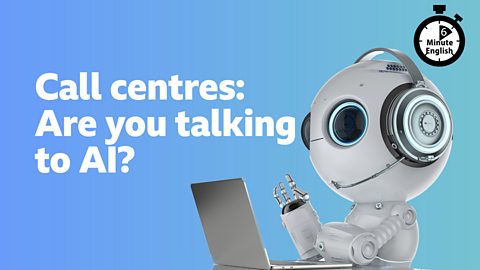
Call centres: Are you talking to AI?
Episode 241219 / 19 Dec 2024
Have you ever phoned up a company and had your call held in a queue? Could AI make this less painful?

Making 'mum friends'
Episode 241212 / 12 Dec 2024
Is making new ‘mum friends’ the positive experience it’s often described as?

Can you trust ancestry DNA kits?
Episode 241205 / 05 Dec 2024
Are DNA ancestry tests a reliable way to trace your ancestry?

How babies learn to talk
Episode 241128 / 28 Nov 2024
What do babies need to learn to do to be able to talk?
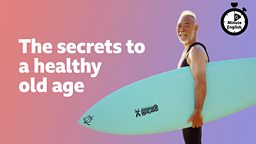

The bond between sisters
Episode 241114 / 14 Nov 2024
Are the stereotypes about older and younger sisters true?


Why you need a good night's sleep
Episode 241031 / 31 Oct 2024
Why is it so important to get a good night's sleep?

Divorce: Why does it happen?
Episode 241024 / 24 Oct 2024
How is divorce talked about in different countries?


Did Taylor Swift fans cause an earthquake?
Episode 241010 / 10 Oct 2024
Did Taylor Swift move the Earth?

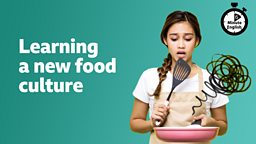
Learning a new food culture
Episode 240926 / 26 Sep 2024
Would you find it different to adapt to a new food culture?
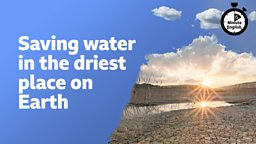
Saving water in the driest place on Earth
Episode 240919 / 19 Sep 2024
How do farmers in the driest place on Earth manage to grow crops? With this solution!

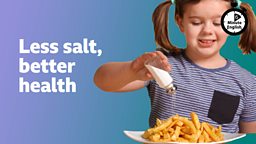
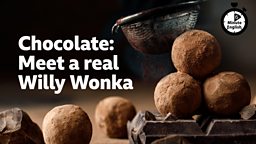
Chocolate: Meet a real Willy Wonka
Episode 240829 / 29 Aug 2024
Would you like to be a chocolate maker, like Roald Dahl's Willy Wonka?
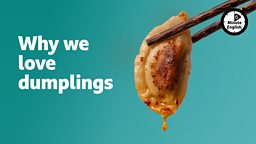
Why we love dumplings
Episode 240822 / 22 Aug 2024
Warning! This episode might make you very hungry...
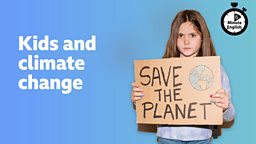
Kids and climate change
Episode 240815 / 15 Aug 2024
What are young people's thoughts on climate change?


The science of falling in love
Episode 240801 / 01 Aug 2024
What's really happening in our brain when we fall in love?
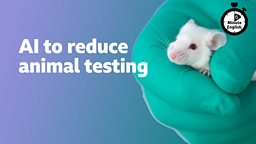
AI to reduce animal testing
Episode 240718 / 18 Jul 2024
Could AI reduce the need for animal testing?

Why read books, not screens?
Episode 240718 / 25 Jul 2024
Why is it better to read from a book than a screen?

The school that puts the kids in charge
Episode 240711 / 11 Jul 2024
What happens when you put the kids in charge of the school?

What can we learn from toddlers?
Episode 240704 / 04 Jul 2024
Learn to speak to yourself in the way that toddlers do!

How learning to read changes lives
Episode 240627 / 27 Jun 2024
How can literacy change people's lives?

Building a better world with wood?
Episode 240620 / 20 Jun 2024
How can buildings made from wood help our mental health?

How names can tell painful stories
Episode 240613 / 13 Jun 2024
Could our name have painful baggage?

E-rickshaws driving away pollution
Episode 240606 / 06 Jun 2024
Could E-rickshaws give us cleaner air?




Bitter food, better health?
Episode 240509 / 09 May 2024
Could bitter foods be better for your health?







Disability in music and theatre
Episode 240321 / 21 Mar 2024
Learn about the people who are making it easier for disabled musicians and music fans to perform and see live music


Sewing to fight period poverty
Episode 240307 / 07 Mar 2024
Period poverty affects over 500 million people worldwide. How can a volunteer project help?
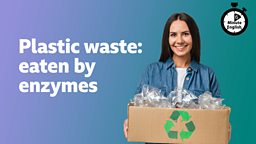
Plastic waste eaten by enzymes
Episode 240229 / 29 Feb 2024
Plastics can be difficult to recycle. Could a recently discovered enzyme help?
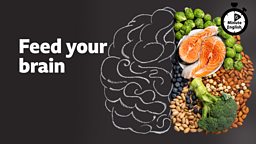
Feed your brain
Episode 240222 / 22 Feb 2024
Food is fuel for our brains. So, what should we be eating?

Food for new mums
Episode 240215 / 15 Feb 2024
Having a baby is exhausting! What do mothers need to eat after giving birth?
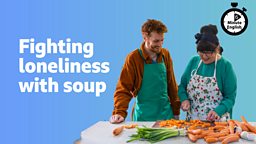
Fighting loneliness with soup
Episode 240208 / 08 Feb 2024
Hear how a project in the Netherlands is helping in the fight against loneliness

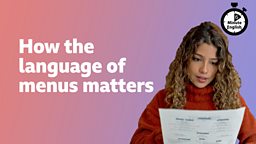
How the language of menus matters
Episode 240125 / 25 Jan 2024
Why is the language used on menus important?





